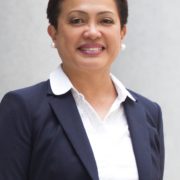JON and Kate own and operate a successful real estate business in California. In addition to owning a beautiful home, they had acquired several homes and apartment buildings which they rented out. In 2008, when the United States economy was struggling and the real estate business was sluggish, Jon and Kate decided to take a long vacation in the Philippines. While enjoying some rest and recreation, Jon and Kate decided to invest in a condominium development project. The couple initially intended to stay only for two months, but decided to extend their stay for another four months to monitor the progress of the project. Just before they were to return to the US, Kate discovered she was pregnant with twins. Since Kate was already in her early 40s, the pregnancy was a difficult one. Her doctor ordered complete bed rest for the entire duration of her pregnancy and travelling was an absolute no-no. Jon and Kate who had been trying to have children for a decade were ecstatic. Per the doctor’s order, they postponed Kate’s trip to the United States and Jon ensured that she be provided with the best possible care. To the relief of the parents, the identical twins were born healthy. Jon who was a US citizen immediately applied and obtained US passports for the twins and made plans for his family to return to the United States. However, by this time, Kate who was a lawful permanent resident had been outside the US for over one year.
A lawful permanent resident’s absence from the United States for over one (1) year is normally considered abandonment of residence in the US and consequently will bar her entry to the US as a lawful permanent resident.
However, a lawful permanent resident’s absence from the United States of over one (1) year will not result in abandonment of US residency if the following requirements are met:
The alien was a lawful permanent resident at the time of departure from the US.
The alien had the intention of returning to the US and has not abandoned this intention;
The alien is returning to the US from a temporary visit abroad and, if the stay was protracted, this was caused by reasons beyond the control of the alien.
A lawful permanent resident who has remained outside the US for longer than one (1) year who meets these requirements may be eligible for what is called a Returning Resident Immigrant (“SB‑1”) visa. The SB-1 visa application is submitted to the nearest US Embassy or Consulate. A consular officer will review the SB-1 visa application and supporting documentation and if approved, this will allow the lawful permanent resident to enter the US and resume permanent residence.
What is important in determining eligibility for the SB-1 visa is the alien’s intent – whether the lawful permanent resident intended to return to the United States after a temporary absence. Examples of documentary evidence that may be submitted to establish that the alien intended to maintain a US residence include: driver’s license, US Income Tax Returns filed for the past years, ownership of real and personal property located in the United States, salary paid by a US employer, children’s enrollment in a US school and evidence of family and social ties in the United States.
In addition, the lawful permanent resident must establish that she intended to stay abroad for a temporary period of time and that the delay in returning to the US was due to reasons beyond her control. The following factors are considered in determining temporary intent: the trip abroad was for a specific purpose, the visit is expected to terminate within a relatively short and predetermined date and the alien expected to return to the United States as an actual home or place of employment.
***
Atty. Jean S. Tinsay is a partner in The Law Firm of Chua Tinsay and Vega (CTV) – a full service law firm with offices in San Francisco, San Diego and Sacramento. The information presented in this article is for general information only and is not, nor intended to be, formal legal advice nor the formation of an attorney-client relationship. Call or e-mail CTV for an in-person or phone consultation to discuss your particular situation and/or how their services may be retained at (415) 495-8088; (619) 955-6277; jtinsay@ctvattys.com






